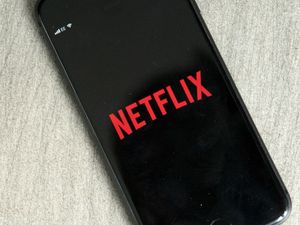Netflix: Why is the streaming giant losing viewers, and what will it do now?
A look at the challenges facing Netflix after it revealed a drop in subscribers.

Netflix has revealed it lost subscribers for the first in 10 years at the start of 2022, sending its shares crashing.
The streaming pioneer has stumbled in the face of increased competition from the likes of Disney, Amazon Prime and the reopening of cinemas.
The US firm has seen its shares cut in half over the past six months as investors have grown increasingly concerned by the company’s change in fortunes.
The PA news agency has looked at the challenges facing Netflix and what the company is likely to do next.
– What are Netflix’s issues?
The main issue for Netflix is simply that it lost viewers over the start of the year while its biggest rivals made gains.
Netflix revealed on Tuesday that it lost 200,000 users over the first three months of 2022, falling well short of predictions it would add 2.5 million subscribers.
In the UK, the pressure on streaming firms has become apparent as customers look to reduce their number of subscriptions as they witness soaring energy and goods bills during the cost-of-living crisis.
Experts at Kantar said earlier this week that around 1.5 million subscriptions have been axed in the UK since the start of 2022.
Netflix said the challenging economic backdrop, war in Ukraine, slowing rollout of broadband in some countries and the large number of subscribers sharing their account details with non-paying households have all contributed to the decline.
The company’s withdrawal from Russia following the invasion of Ukraine meant it immediately lost its 700,000 customers in the region, but the firm would have still seen figures significantly below expectations without the intervention.
As customer spending comes under pressure, the group faces increased demand for high quality content in order to justify people’s subscription fees.
The firm’s key challenge in recent years has been to ensure a strong roster of original series and films as many previous partners, such as Disney, withdrew their content to start up their own platforms.
– How bad could the subscriber exodus get?
The key reason shares dropped so sharply on Tuesday was because bosses warned shareholders that the situation was going to get worse before it got any better.
Netflix predicted that another two million users will leave in the three months to July.
The company said its profits dropped 6% over the latest quarter and the downbeat outlook could suggest an even sharper profit decline could be on the cards.
Freetrade’s Paul Allison said the predicted drop in users is “a worrying sign… at a time when the firm is raising prices across the board to generate enough cash flow (which is currently negative) to maintain an entertaining line-up of shows”.

The streaming firm will hope that its recent heavy investment in fresh content and franchises will quickly bring rewards.
Last year, the company announced multimillion-pound deals to buy the works of Roald Dahl and the rights to the upcoming Knives Out sequels.
It will also hope that the return of top performing series – such as Stranger Things next month – will halt customers thinking about axing their subscriptions.
– What could they do next?
Bosses at the company said on Tuesday that they are considering a number of significant changes which could improve customer numbers and profitability.
They said they are now open to adding advertising to the service, in return for a cheaper subscription.
Reed Hastings, co-founder and chairman of Netflix, has long been opposed to introducing commercials to the service but could make the move to add another revenue stream.
The company could also clamp down on customers sharing their accounts with other households.

Netflix started a crackdown in Chile, Costa Rica and Peru on people sharing passwords and is considering expanding the scheme.
The company said in its latest financial report that it believes it is being shared with 100 million extra households alongside the 222 million paying for the service.
– Rivals?
When Netflix first U-turned from DVD-rental to home streaming the company had very few competitors, but has seen a flurry of competition grow in recent years.
People have signed up to numerous subscriptions in recent years but are now starting to reduce the number they pay for as they tighten their belts due to the cost-of-living crisis, creating more competition.
Disney+ has been a particular winner over the past year, with the firm attracting more customers than initially expected as families signed up during the pandemic.
Netflix also continues to face competition from Amazon, which acquired James Bond studio MGM last month in an 8.5 billion dollar (£6.5 billion) deal to build a library of content for subscribers.
However, one of the group’s biggest competitors is also the desire from customers to spend any time away from screens.
Reed Hastings infamously said that Netflix saw the human need to sleep as a bigger competitor than Amazon and HBO as it takes up a “very large pool of time”, saying it benefits from viewers staying up late because they get addicted to a series.





